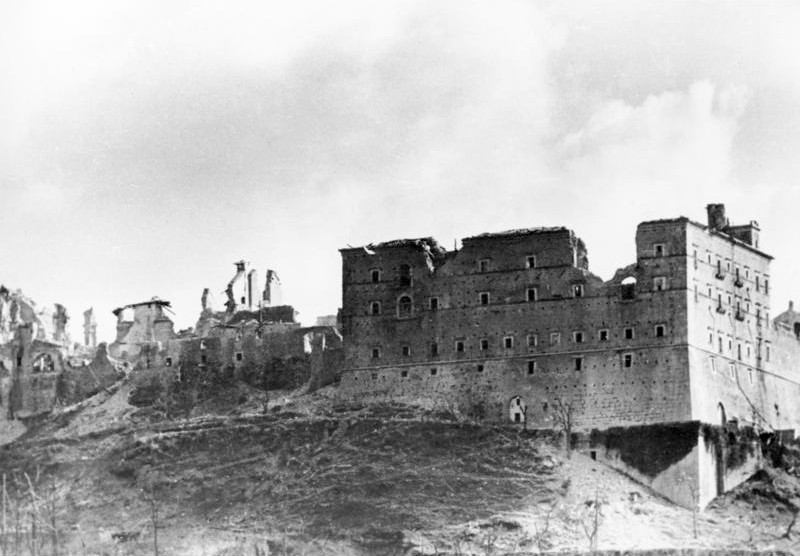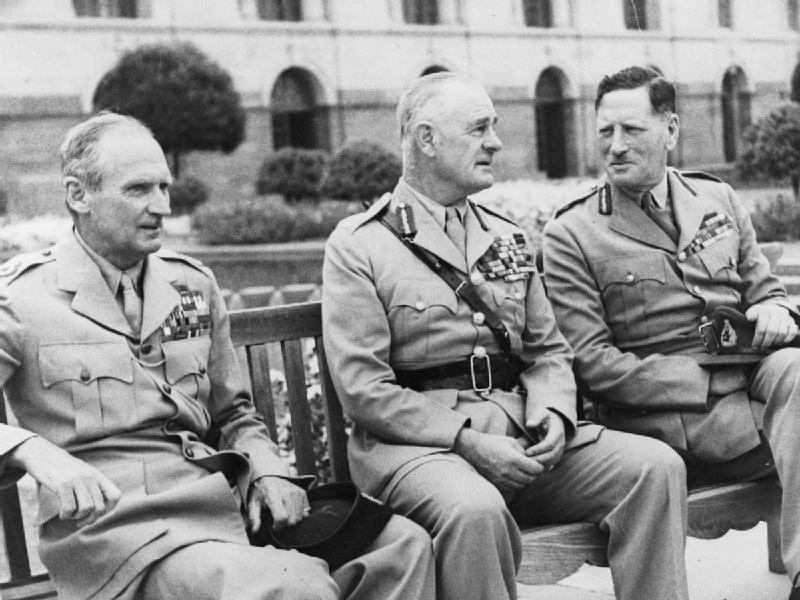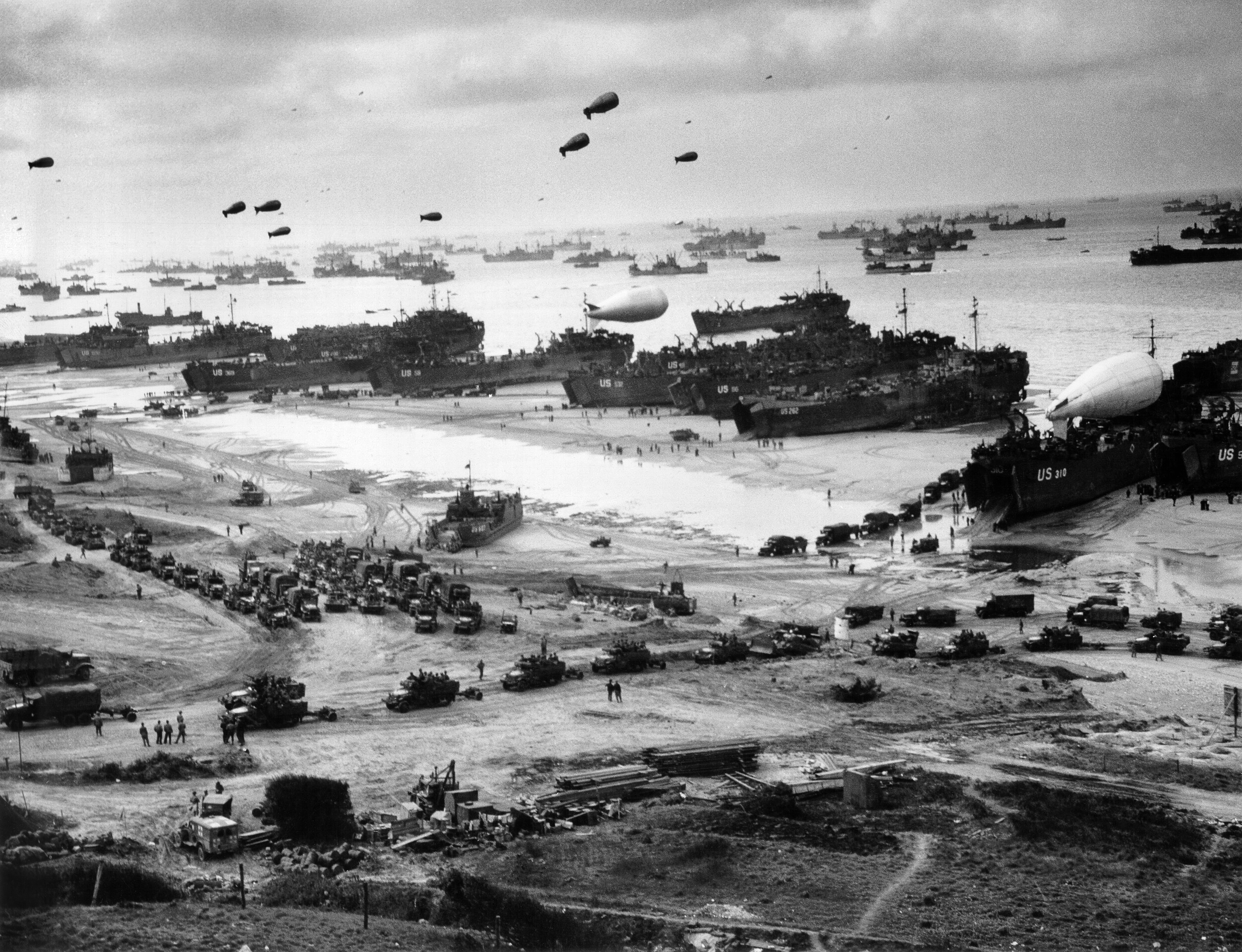|
Forces Parliament
The Cairo Forces Parliament was a meeting of British soldiers in Cairo, Egypt in February 1944 which voted for the nationalisation of banks, land, mines, and transport in the United Kingdom. Among those that took part was Leo Abse who later became a Labour MP. Another participant who later became a Labour MP was Henry Solomons, who was appointed the Labour 'Prime Minister' of the Cairo Forces Parliament. Sam Bardell, a member of the Communist Party of Great Britain was secretary and the parliament attracted political activists from the Common Wealth Party and the Trotskyist movement. The Parliament was eventually shut down because of the growing support for the revolutionary ideas promoted by members of the Workers' International League. Adopting the tactics of the Proletarian Military Policy, they were elected to the positions of Prime Minister and Home Secretary. Their revolutionary work was successful in winning the support of many soldiers, as described by Ted Grant,"Fro ... [...More Info...] [...Related Items...] OR: [Wikipedia] [Google] [Baidu] |
British Armed Forces
The British Armed Forces, also known as His Majesty's Armed Forces, are the military forces responsible for the defence of the United Kingdom, its Overseas Territories and the Crown Dependencies. They also promote the UK's wider interests, support international peacekeeping efforts and provide humanitarian aid. Since the formation of the Kingdom of Great Britain in 1707 (later succeeded by the United Kingdom), the British Armed Forces have seen action in a number of major wars involving the world's great powers, including the Seven Years' War, the American Revolutionary War, the Napoleonic Wars, the 1853–1856 Crimean War, the First World War, and the Second World War. Britain's victories in most of these decisive wars, allowed it to influence world events and establish itself as one of the world's leading military and economic powers. As of October 2022, the British Armed Forces consist of: the Royal Navy, a blue-water navy with a fleet of 72 commissioned ships, together ... [...More Info...] [...Related Items...] OR: [Wikipedia] [Google] [Baidu] |
Mhow
Mhow, officially Dr. Ambedkar Nagar, is a town in the Indore district in Madhya Pradesh state of India. It is located south-west of Indore city, towards Mumbai on the old Mumbai-Agra Road. The town was renamed as ''Dr. Ambedkar Nagar'' in 2003, by the Government of Madhya Pradesh. Etymology Some articles in popular literature state that 'MHOW' stands for Military Headquarters Of War. However, this is a backronym, and there is no proof to support the theory that the name of the village comes from the acronym. The village near Mhow was called Mhow Gaon in the Mughal/Maratha era, when English was not used in India. The Cantonment which came up in 1818 during the Third Anglo-Maratha War, came to be known as Mhow Cantt after the name of this village. Sir John Malcolm spelt the name of this town as MOW in his writings. The 1918 edition of Encyclopædia Britannica also mentions 'MAU'. However, the Cantonment was referred to by British officers as Mhow at least as early as the end o ... [...More Info...] [...Related Items...] OR: [Wikipedia] [Google] [Baidu] |
1944 Conferences
Events Below, the events of World War II have the "WWII" prefix. January * January 2 – WWII: ** Free French General Jean de Lattre de Tassigny is appointed to command French Army B, part of the Sixth United States Army Group in North Africa. ** Landing at Saidor: 13,000 US and Australian troops land on Papua New Guinea, in an attempt to cut off a Japanese retreat. * January 8 – WWII: Philippine Commonwealth troops enter the province of Ilocos Sur in northern Luzon and attack Japanese forces. * January 11 ** President of the United States Franklin D. Roosevelt proposes a Second Bill of Rights for social and economic security, in his State of the Union address. ** The Nazi German administration expands Kraków-Płaszów concentration camp into the larger standalone ''Konzentrationslager Plaszow bei Krakau'' in occupied Poland. * January 12 – WWII: Winston Churchill and Charles de Gaulle begin a 2-day conference in Marrakech. * January 14 – WWI ... [...More Info...] [...Related Items...] OR: [Wikipedia] [Google] [Baidu] |
1944 In Politics
Events Below, the events of World War II have the "WWII" prefix. January * January 2 – WWII: ** Free France, Free French General Jean de Lattre de Tassigny is appointed to command First Army (France), French Army B, part of the Sixth United States Army Group in North Africa. ** Landing at Saidor: 13,000 US and Australian troops land on Papua New Guinea, in an attempt to cut off a Japanese retreat. * January 8 – WWII: Philippine Commonwealth troops enter the province of Ilocos Sur in northern Luzon and attack Japanese forces. * January 11 ** President of the United States Franklin D. Roosevelt proposes a Second Bill of Rights for social and economic security, in his State of the Union address. ** The Nazi German administration expands Kraków-Płaszów concentration camp into the larger standalone ''Konzentrationslager Plaszow bei Krakau'' in occupied Poland. * January 12 – WWII: Winston Churchill and Charles de Gaulle begin a 2-day conference in Marrakech ... [...More Info...] [...Related Items...] OR: [Wikipedia] [Google] [Baidu] |
1944 In Egypt
Events Below, the events of World War II have the "WWII" prefix. January * January 2 – WWII: ** Free France, Free French General Jean de Lattre de Tassigny is appointed to command First Army (France), French Army B, part of the Sixth United States Army Group in North Africa. ** Landing at Saidor: 13,000 US and Australian troops land on Papua New Guinea, in an attempt to cut off a Japanese retreat. * January 8 – WWII: Philippine Commonwealth troops enter the province of Ilocos Sur in northern Luzon and attack Japanese forces. * January 11 ** President of the United States Franklin D. Roosevelt proposes a Second Bill of Rights for social and economic security, in his State of the Union address. ** The Nazi German administration expands Kraków-Płaszów concentration camp into the larger standalone ''Konzentrationslager Plaszow bei Krakau'' in occupied Poland. * January 12 – WWII: Winston Churchill and Charles de Gaulle begin a 2-day conference in Marrakech ... [...More Info...] [...Related Items...] OR: [Wikipedia] [Google] [Baidu] |
British Army In World War II
At the start of 1939, the British Army was, as it traditionally always had been, a small volunteer professional army. At the beginning of the Second World War on 1 September 1939, the British Army was small in comparison with those of its enemies, as it had been at the beginning of the First World War in 1914. It also quickly became evident that the initial structure and manpower of the British Army was woefully unprepared and ill-equipped for a war with multiple enemies on multiple fronts. During the early war years, mainly from 1940 to 1942, the British Army suffered defeat in almost every theatre of war in which it was deployed. But, from late 1942 onwards, starting with the Second Battle of El Alamein, the British Army's fortunes changed and it rarely suffered another defeat. While there are a number of reasons for this shift, not least the entrance of both the Soviet Union and the United States in 1941, as well as the cracking of the Enigma code that same year, an importa ... [...More Info...] [...Related Items...] OR: [Wikipedia] [Google] [Baidu] |
1940s In Cairo
Year 194 ( CXCIV) was a common year starting on Tuesday (link will display the full calendar) of the Julian calendar. At the time, it was known as the Year of the Consulship of Septimius and Septimius (or, less frequently, year 947 ''Ab urbe condita''). The denomination 194 for this year has been used since the early medieval period, when the Anno Domini calendar era became the prevalent method in Europe for naming years. Events By place Roman Empire * Emperor Septimius Severus and Decimus Clodius Septimius Albinus Caesar become Roman Consuls. * Battle of Issus: Septimius Severus marches with his army (12 legions) to Cilicia, and defeats Pescennius Niger, Roman governor of Syria. Pescennius retreats to Antioch, and is executed by Severus' troops. * Septimius Severus besieges Byzantium (194–196); the city walls suffer extensive damage. Asia * Battle of Yan Province: Warlords Cao Cao and Lü Bu fight for control over Yan Province; the battle lasts for over 100 days ... [...More Info...] [...Related Items...] OR: [Wikipedia] [Google] [Baidu] |
1944 In The British Empire
Events Below, the events of World War II have the "WWII" prefix. January * January 2 – WWII: ** Free France, Free French General Jean de Lattre de Tassigny is appointed to command First Army (France), French Army B, part of the Sixth United States Army Group in North Africa. ** Landing at Saidor: 13,000 US and Australian troops land on Papua New Guinea, in an attempt to cut off a Japanese retreat. * January 8 – WWII: Philippine Commonwealth troops enter the province of Ilocos Sur in northern Luzon and attack Japanese forces. * January 11 ** President of the United States Franklin D. Roosevelt proposes a Second Bill of Rights for social and economic security, in his State of the Union address. ** The Nazi German administration expands Kraków-Płaszów concentration camp into the larger standalone ''Konzentrationslager Plaszow bei Krakau'' in occupied Poland. * January 12 – WWII: Winston Churchill and Charles de Gaulle begin a 2-day conference in Marrakech ... [...More Info...] [...Related Items...] OR: [Wikipedia] [Google] [Baidu] |
History Of Cairo
Cairo ( ; ar, القاهرة, al-Qāhirah, ) is the capital of Egypt and its largest city, home to 10 million people. It is also part of the largest urban agglomeration in Africa, the Arab world and the Middle East: The Greater Cairo metropolitan area, with a population of 21.9 million, is the 12th-largest in the world by population. Cairo is associated with ancient Egypt, as the Giza pyramid complex and the ancient cities of Memphis and Heliopolis are located in its geographical area. Located near the Nile Delta, the city first developed as Fustat, a settlement founded after the Muslim conquest of Egypt in 640 next to an existing ancient Roman fortress, Babylon. Under the Fatimid dynasty a new city, ''al-Qāhirah'', was founded nearby in 969. It later superseded Fustat as the main urban centre during the Ayyubid and Mamluk periods (12th–16th centuries). Cairo has long been a centre of the region's political and cultural life, and is titled "the city of a thousand minare ... [...More Info...] [...Related Items...] OR: [Wikipedia] [Google] [Baidu] |
Putney Debates
The Putney Debates, which took place from 28 October to 8 November 1647, were a series of discussions over the political settlement that should follow Parliament's victory over Charles I in the First English Civil War. The main participants were senior officers of the New Model Army who favoured retaining Charles within the framework of a Constitutional monarchy, and radicals such as the Levellers who sought more sweeping changes, including One man, one vote and Freedom of thought, particularly in religion. Alarmed by what they viewed as the dangerous radicalism and increasing power of the New Model Army, in March 1647 the Presbyterian moderates who dominated the Long Parliament ordered it to disband, a demand which was refused. In June, the army removed Charles from the custody of Parliament and in August established its headquarters at Putney, just outside the City of Westminster in South West London. Its senior officers or "Grandees" hoped the debates would end political divi ... [...More Info...] [...Related Items...] OR: [Wikipedia] [Google] [Baidu] |
Post–World War II Demobilization Strikes
Post–World War II demobilization strikes occurred within Allied military forces stationed across the Middle East, India and South-East Asia in the months and years following World War II. American military personnel based in occupied Germany were holding mass parades for speedier demobilization and in the Philippines formed soldiers committees and went on demonstrations calling for a return home. In India, thousands of Royal Air Force servicemen pushed for demobilization and went on strike citing grievances over conditions of work such as deaths in high temperatures in Cawnpore (station: 322 MU Cawnpore) and overcrowding at RAF Jodhpur. A "Forces Parliament" was set up - effectively a workers' council, but was dissolved before the issues came to a head. The issue was a major subject of debate in the British Parliament. At one point Prime Minister Clement Attlee was presented with a petition by India-stationed servicemen that stated: ''"We have done the job we joined up to do. N ... [...More Info...] [...Related Items...] OR: [Wikipedia] [Google] [Baidu] |
Deolali Transit Camp
Deolali transit camp was a British Army transit camp in Maharashtra, India. Established in 1861, the camp remained in use throughout the time of the British Raj. It served to house soldiers newly arrived in the country and those awaiting ships to take them to Britain. It also housed a military prison and during the two world wars served as a prisoner of war camp. Conditions in the camp were said to be poor especially for those stationed there for long periods and the term " doolally" became associated with mental illness. The camp was transferred to the Indian army following the independence of India. Transit camp The camp was located near Deolali, Maharashtra, around north-east of Mumbai. The camp is situated near a prominent conical hill and the Bahula Fort. The British camp was established in 1861 as the Deolali Cantonment and was soon used as a transit camp, particularly for soldiers awaiting return to Britain. It was also used for training and acclimatisation for soldiers ... [...More Info...] [...Related Items...] OR: [Wikipedia] [Google] [Baidu] |






.jpg)